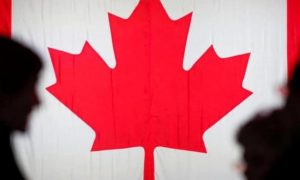Canada recently unveiled a new tax-free account specifically designed to help first-time home buyers in saving up to $40,000 on their dream home. The initiative also extends eligibility to work permit holders and international students, provided they meet certain residency requirements.
This program aims to ease the financial burden on individuals aspiring to own their first homes in Canada. By offering tax incentives and savings opportunities, it seeks to make homeownership more accessible and achievable for a broader spectrum of residents, including those from abroad who are contributing to Canada’s workforce and educational institutions.
Read More: Imran Khan to be Released on Bail as Islamabad High Court Suspends Toshakhana Case Verdict
The inclusion of work permit holders and international students underscores Canada’s commitment to providing opportunities for newcomers to establish themselves in the country. As long as these individuals fulfill the specified residency obligations, they can also benefit from this innovative savings account.
This initiative not only supports prospective homeowners but also aligns with Canada’s reputation as a welcoming and inclusive nation, where individuals from diverse backgrounds can pursue their dreams of homeownership.
You are eligible to open an First Home Savings Account (FHSA) account if you meet all of the following criteria:
- A first-time house purchaser, which means you, your spouse/partner have not owned your primary residence individually or jointly within the past four to five years.
- at least 18 years old and no older than 71 years old on December 31 of the year an account is opened
- a Canadian resident (Citizens, permanent residents, and certain temporary residents who meet the residency requirements for income tax purposes).
Work permit holders and international students must reside in the country for at least 183 days during the tax year to qualify as residents.
Read More: Google, Meta and other tech companies will be asked to pay Digital Tax in New Zealand
The three types of FHSA accounts that financial institutions are currently offering are:
- Depositary FHSA: This is a bank account that contains cash, term deposits, or guaranteed investment certificates (GICs).
- Trusteed FHSA: This account can be opened with a trust company as trustee and contains qualified investments such as cash, term deposits, GICs, government and corporate bonds, mutual funds, and securities listed on a designated stock exchange.
- Insured FHSA: This is a contract for an annuity (with a licensed annuity provider).
Eligible residences include single-family homes, semi-detached homes, townhouses, condominium units (or condos), apartment units, and mobile homes.
In the event that you transition from being a Canadian resident to a non-resident after establishing a FHSA, there are specific implications to be aware of:
- Continued Contributions: You will still have the option to make contributions to your FHSA as you normally would, even as a non-resident.
- Tax-Free Withdrawal Ineligibility: However, the key difference lies in your eligibility to make tax-free withdrawals from your FHSA for the purpose of purchasing a home. As a non-resident, you will not be eligible for these tax-free withdrawals.
- Taxation on Withdrawals: If you do choose to withdraw funds from your FHSA as a non-resident, those withdrawals will be subject to taxation. Specifically, a 25% withholding tax will be applied unless your country of residency has a tax treaty with Canada that grants you a lower tax rate or exempts you from taxation.
Read More: Donald Trump Inflated Net Worth Up to $2.2B Per Year From 2011 to 2021: Prosecutors
What does it mean to become a non-resident
Becoming a non-resident of Canada involves various factors related to your immigration status, physical presence, and residential ties. Here’s a breakdown of these important considerations:
- Work or Study Permits: If your work permit or study permit expires, and you do not renew it or obtain permanent resident status in Canada during that period, you will transition into the category of non-resident.
- Physical Residency Obligation: Maintaining your permanent residency in Canada requires meeting a physical residency obligation. If you fail to satisfy this obligation, which involves spending a specified amount of time in the country, you will become a non-resident.
- Duration of Stay: Remaining in Canada for less than 183 days during a particular tax year and lacking significant residential ties to the country can lead to non-resident status.
- Renouncing PR Status or Citizenship: If you voluntarily give up your permanent resident (PR) status or Canadian citizenship, you will automatically become a non-resident.





































